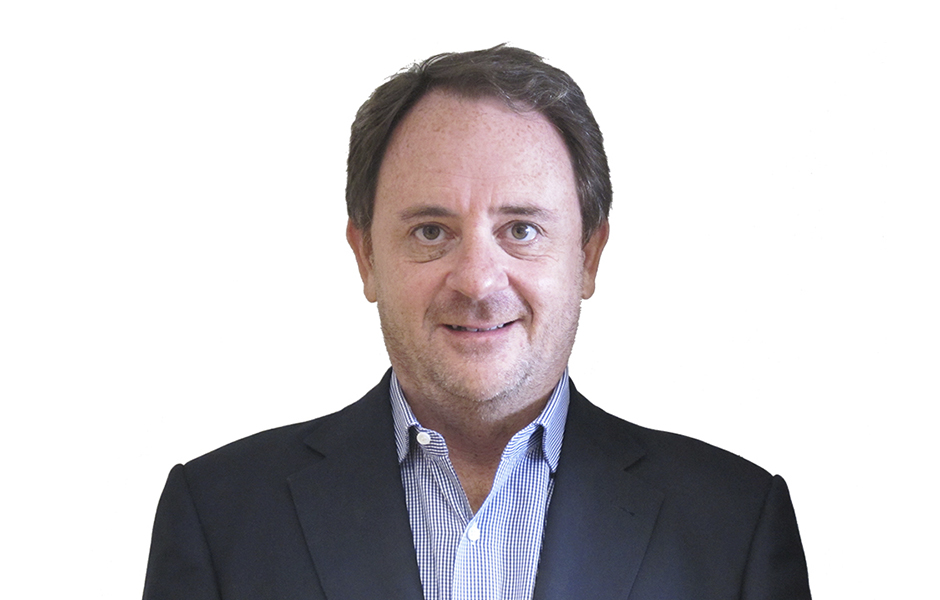Nuno Borges, a researcher, professor and nutritionist, has been a member of CINTESIS – Center for Health Technology and Services Research since its inception and is a natural fit for the new RISE-Health Research Unit, the largest in the country.
He was born in Porto in 1966 and obtained his degree in Nutrition Sciences in 1989 from the Faculty of Nutrition and Food Sciences of the University of Porto (FCNAUP), where he began teaching as a monitor in the 1990s and where he is currently Associate Professor and president of the Scientific Council.
After his five-year degree, he did his academic internship at the Hospital of São João ( currently ULS São João), more specifically in Nephrology, and carried out research at the Institute of Pharmacology of the Faculty of Medicine of the University of Porto (FMUP), where he remained until completing his doctorate in Human Biology in 1995. During his academic and professional career, he worked at various institutions, including the University of Kansas in the USA. From 1995 to 1998, he worked as an assistant researcher at BIAL.
In 1999, he was challenged to stay at FCNAUP as a professor, which he accepted, only giving up his exclusive position so that he could carry out clinical work as a nutritionist, something he considered important for the work he would go on doing. He took part in several scientific projects in the field of nutrition, including his participation in Nutrition UP65, funded by the EEA Grants, with the aim of reducing nutritional inequalities in the Portuguese elderly population.
At CINTESIS, he was part of two major projects: Symbiotic technology for societal efficiency gains – Deus Ex Machina (DeM) and ADHeart – Get involved with your heart: Promoting therapeutic adherence with a telemonitoring system for people with chronic heart failure, in partnership with Fraunhofer Portugal and educational institutions/research centers.
With a cohort of more than three hundred heart failure patients, Nuno Borges and his team have been analyzing a range of nutritional and functional parameters (muscle functionality, body composition, hand grip strength, among others), which has resulted in scientific articles and presentations at scientific meetings. The aim is to understand which heart failure patients might benefit most from certain interventions.
At FCNAUP, he is involved in a project, which has applied for funding from the Portuguese Foundation for Science and Technology (FCT), which explores the monitoring of various parameters in hospitalized patients with different pathologies.
“We’re going to try to expand the scope of these parameters that we’ve been applying to patients with heart failure, who are frail patients with associated comorbidities, which reduces their quality of life,” he explains.
Malnutrition is, as he points out, a very common problem in hospitalized patients and beyond. Nutritional screening is provided for in a standard published by the Directorate-General for Health, and was extended to all levels of care in the National Health Service (SNS) in 2023. The aim is to identify at an early stage those patients who are most at risk of deteriorating nutritional status and who may benefit more from specialized care, ranging from diagnosis to treatment of malnutrition. However, he notes that “there is a certain asymmetry in the implementation of these measures in Portugal, and they are more widely implemented when you move from south to north”.
Despite all the progress that has already been made, Nuno Borges stresses that “much more” can be done in this area, both in terms of research and, above all, in terms of practical implementation, particularly at the hospital level. At this point, human resources will be fundamental, since, as the saying goes, “you can’t make an omelet without eggs to start with”.
As far as RISE-Health is concerned, “it’s a great Unit, which presents opportunities and challenges. The opportunities are more direct access to a large network of researchers at the national level. We have to focus on these opportunities and we have to move forward.”
As a researcher, Nuno Borges has published around 90 scientific articles in specialized journals, focusing mainly on the interaction between drugs and nutrients, particularly in the elderly. He is also a Guest Associate Professor at the University of Minho, where he teaches Nutrition to future doctors. He is editor of the journal Acta Portuguesa de Nutrição and is on the board of the Portuguese Nutrition Association. He was president of the Scientific Committee of the XXIII Nutrition and Food Congress (CNA), which took place in May 2024 in Lisbon.
What is your 1-year ambition?
In research, I hope to get funding for the heart failure project, which would enable a big boom. We have a lot of practice and we have the researchers, although we don’t have as many new researchers as we would like. We need investment because people can’t do this work pro bono.
What is your 10-year ambition?
At this stage of my life, my ambition is genuinely to get the projects on track so that the colleagues who follow don’t have to start from as low a base as we did. This means having projects underway and having the backbone to be able to seek funding from other sources. CINTESIS is instrumental in achieving this because it has an established name and a structure. In teaching, it’s the same thing: creating the conditions for those who will follow us to be successful.
How is life beyond research and teaching?
Fortunately, life isn’t just about work. I love listening to music and exploring hidden Portugal. I travel to other countries whenever I can, but in Portugal, I often go by car, with my bicycle, and take walks that help me recharge my batteries (not muscular, but emotional). I have a great family, two daughters, and my parents, who are still doing well. That’s the main thing!

